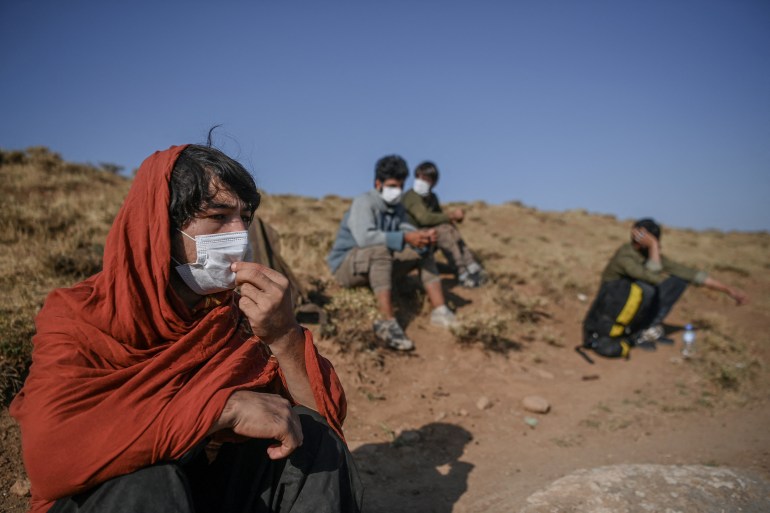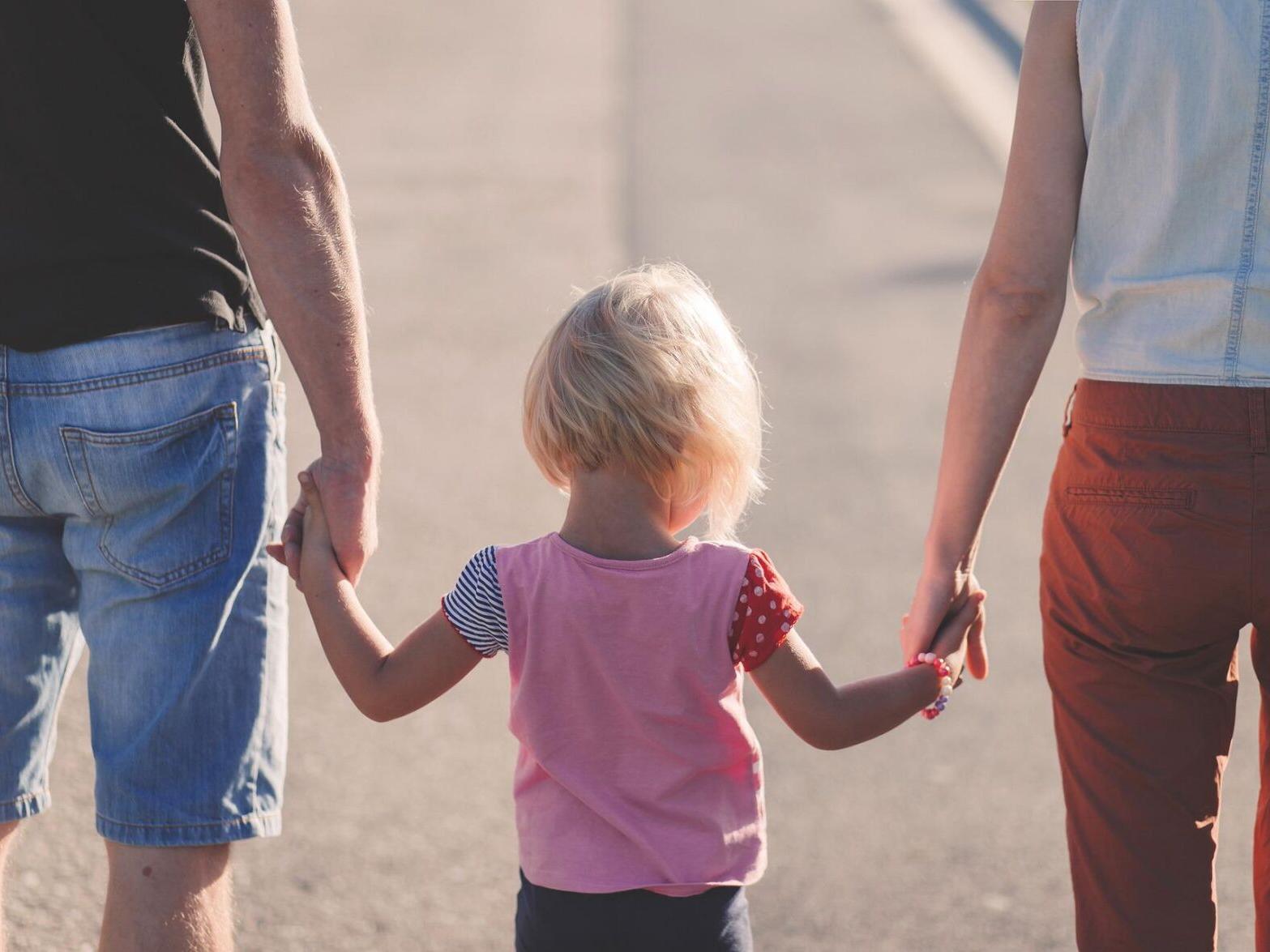Subsequent the Taliban’s amazing takeover of the Afghan money, Kabul, a urgent dialogue has revolved all over the new government’s legal procedure and, much more precisely, how it will address women of all ages.
After the Taliban’s victory previous week, senior commander Waheedullah Hashimi laid out the broad strokes of how Afghanistan will be governed.
He claimed a council of Islamic scholars will identify the legal technique and that an Islamic authorities will be guided by Islamic regulation, not the ideas of democracy.
“There will be no democratic system at all mainly because it does not have any base in our country,” he explained. “We will not focus on what form of political process ought to we utilize in Afghanistan due to the fact it is obvious. It is Sharia law and that is it,” he told Reuters.
In the group’s initially press convention on Tuesday, Taliban spokesman Zabihullah Mujahid assured girls their legal rights would be highly regarded “within the framework of Islamic law”, including that ladies would have the right to schooling and do the job.
But Taliban officials remain obscure on regulations and limits, and how Islamic law will be implemented. It is, thus, unclear what lifestyle will be like in the “Islamic Emirate of Afghanistan” – the name the Taliban refers to the country by.
“We will move forward in the coming days to go about locating options like operating on judiciary and [getting] religious scholars to overview the technique and its implementation … in mild of the Islamic principles,” Suhail Shaheen, spokesman for the Taliban’s Political Office in Doha, informed Al Jazeera. “Let’s wait around until eventually the total method is in place.”
“As for females, they can have their basic rights as for every Islamic procedures,” Shaheen additional.
In accordance to HA Hellyer, a fellow at the Centre for Islamic Reports at Cambridge College, this ambiguity may well choose time to distinct.
“There will be many concerns about how the Taliban will apply the Sharia, or Islamic regulation, in Afghanistan. There won’t be considerably clarity on this for some time,” explained Hellyer.
 The 2004 constitution bundled a preamble that no law could contravene Islam [File: Aref Karimi/AFP]
The 2004 constitution bundled a preamble that no law could contravene Islam [File: Aref Karimi/AFP]Islamic law in Afghanistan
“Sharia” translates to “the way” in Arabic and refers to a extensive-ranging overall body of ethical and moral ideas drawn from the Quran and from the sayings and procedures of the Prophet Muhammad.
The rules change in accordance to the interpretation of a variety of students who founded colleges of assumed followed by Muslims who use them to information their day-to-day lives.
Many Muslim-greater part nations around the world foundation their laws on their interpretation of the principles of Islamic regulation but, in spite of this, no two have equivalent laws.
Even in Afghanistan, while both of those the Taliban – which ruled the region amongst 1996 and 2001 – and the governing administration of Ashraf Ghani claimed to uphold Islamic legislation, they had distinct legal systems.
The Taliban’s interpretation of Islamic legislation comes from “the Deobandi strand of Hanafi jurisprudence” – a branch discovered throughout various areas of southeast Asia, including Pakistan and India – and the group’s very own “lived encounter as a predominantly rural and tribal society”, according to Talha Abdulrazaq, a analysis fellow at the University of Exeter’s Tactic and Stability Institute.
Independent Afghan analyst Ahmed-Waleed Kakar mentioned: “The Taliban can ideal be understood as ‘classical’ in interpretation, or veering a lot more towards scholars found as orthodox, these as people from the Indian subcontinent and Center East.”
Afghanistan’s 2004 constitution, which was followed by Ghani’s government, bundled a preamble that the nation’s legislation would not contravene Islam, but the Taliban critiqued it for hoping to reconcile “Islamic rules with the liberal world order and the reality that it was composed and enshrined beneath what they perceived to have been the hegemonic West”, according to Kakar, who is also the founder of the Afghan Eye.
He pointed to the amusement industry operating freely less than Ghani as an instance of something the Taliban would understand as “un-Islamic”.
 During the 1990s, the Taliban enforced strict dress codes on gentlemen and females and mostly barred women of all ages from function and instruction [File: Ozan Kose/AFP]
During the 1990s, the Taliban enforced strict dress codes on gentlemen and females and mostly barred women of all ages from function and instruction [File: Ozan Kose/AFP]Remembering the 1990s
The Taliban emerged in the early 1990s pursuing decades of civil war. Many had analyzed in spiritual faculties in Afghanistan and across the border in Pakistan.
The group promised to restore peace and safety immediately after capturing Kabul in the mid-1990s and overthrowing President Burhanuddin Rabbani, a senior determine in the Afghan Mujahideen who fought the Soviet occupation.
The Taliban was originally well-liked owing to its achievements in stamping out corruption, curbing lawlessness and bringing protection to regions under its handle.
When it came to power in 1996, it enforced rigorous dress codes on guys and ladies and mostly barred women of all ages from get the job done and instruction.
The Taliban also applied prison punishments (hudood) in line with their demanding interpretation of Islamic legislation, together with public executions of individuals convicted of assassin or adultery by their judges, and amputations for those found guilty of theft. The group also banned television, tunes, and cinema.
With the memory of the 1990s continue to new, countless numbers of Afghans tried to escape the place above the past 7 days. Numerous gathered at Kabul’s global airport and tried to catch evacuation flights for employees at overseas missions.
Some women of all ages and rights groups expressed critical worries about the future of rights and freedoms in Afghanistan.
 Because the Taliban takeover, 1000’s of Afghans are trying to leave [File: Hoshang Hashimi/AFP]
Because the Taliban takeover, 1000’s of Afghans are trying to leave [File: Hoshang Hashimi/AFP]What is changed?
In accordance to Hellyer, nowadays “is a new scenario entirely”, so factors are expected to be various.
The Taliban will have to offer with a new Afghanistan in comparison with that of the 1990s, with various roles presently in location for females and other teams, mentioned Hellyer.
The Taliban will also have to offer with the probability of variations in view amongst the management and these in the wider movement, he advised Al Jazeera.
In accordance to Kakar, while the “theoretical interpretation of the Sharia would remain by and substantial the exact same as the 90s”, the prevailing situation – which are usually taken greatly into account to get there at lawful judgements – are distinctive.
“The authorized judgements and approaches too will vary,” he stated.
“Whilst a fully democratic technique is not likely, it is plausible that characteristics of the past regime [Ghani’s] would continue being, so lengthy as these complied with the common ethos of the new, Taliban-authorised ‘Islamic system’,” additional Kakar.
The group may perhaps also be fascinated in projecting an graphic of moderation and inclusivity to prevent becoming isolated by the international group as was the case in the 1990s.
“They have admitted to generating problems in their very first emirate so now we have to hold out and see what lessons they imagine they’ve realized,” Abdulrazaq reported, adding that the Taliban’s legal sights are related to their lived expertise, which in the past associated being in “constant warfare” and getting rid of electricity.
The EU stated it was suspending development assist to Afghanistan right until the political condition will become clearer. The EU’s overseas policy main, Josep Borrell, explained that the Taliban must regard UN Stability Council resolutions in order to access 1.2 billion euros in advancement money.
On the floor, the movement has been relatively contradictory.
Feminine journalists had been allowed to resume their perform on camera at Afghanistan’s most common tv station, Tolo – even interviewing a Taliban chief on Tuesday – as the team introduced an amnesty for civilians who worked with foreign groups around the previous 20 years.
In the meantime, Shabnam Dawran, a news anchor with condition channel RTA Pushto, produced a video clip on Thursday saying she was advised to go residence when she attempted to go to operate.
On the same working day, the Taliban cracked down on protesters seeking to display the Afghan flag.
A day afterwards, a UN menace evaluation report mentioned the Taliban was going property-to-property searching for opponents and their people, elevating fears of revenge.
The Taliban says it has banned users from coming into private properties and denied the statements but claimed it is investigating cases of criminality by persons.




More Stories
Lebanese Parliament Fails 8th Time To Elect New President
The Importance of How You Announce Your Company’s M&A Deal – KJK
What Do We Know About Violent Crime Trends in North Carolina? – North Carolina Criminal LawNorth Carolina Criminal Law